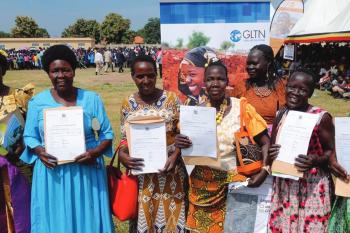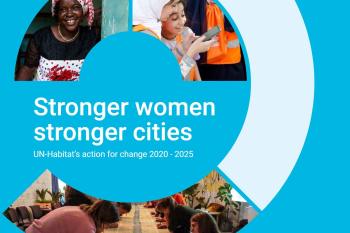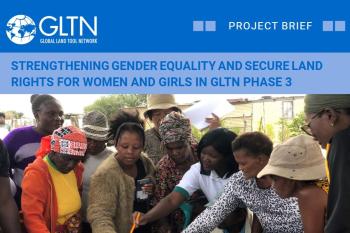
Read More
Gender Strategy for Land-at-Scale Uganda
Women’s Land Rights (WLRs) are fundamental human rights, foundational to gender equality and women’s dignity and instrumental in improving food security, effective climate action, poverty eradicati

Uchendu Eugene Chigbu (ed.) 2022. CABI
This book presents new conceptual and empirical studies on the design and evaluation of land governance, focusing on land management approaches, land policy issues, advances in pro-poor land tenure and land-based gender concerns.
It explores alternative approaches for land management and land tenure through international experiences.
Part 1 covers Concepts, debates and perspectives on the governance and gender aspects of land.
Part 2 focuses on Tenure-gender dimensions in land management, land administration and land policy. It deals with land issues within the interface of theory and practice.
Part 3 covers Applications and experiences: techniques, strategies, tools, methods, and case studies.
Part 4 focuses on Land governance, gender, and tenure innovations. Case studies discussed include China, Ethiopia, Ghana, Lesotho, Germany, Mexico, Mozambique, Rwanda, and South Korea.
Themes include Islamic tenure, reverse migration, matriarchy/matrilineal systems, structural inequality, tenure-responsive planning, land-related instabilities and COVID-19, urban-rural land concerns, women's tenure bargaining, tenure-gender nexus concerns in developing and developed countries.

Women’s Land Rights (WLRs) are fundamental human rights, foundational to gender equality and women’s dignity and instrumental in improving food security, effective climate action, poverty eradicati

This publication presents a summary of UN-Habitat’s gender equality impact over the past five years, in line with the Beijing reporting cycle.

GLTN’s institutional commitment to gender equality and secure land rights for women and girls has been at the core of its work since inception in 2006.